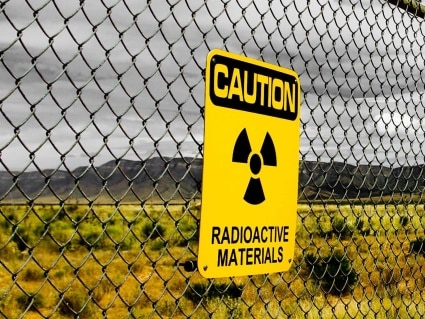Requirements for Service Connection – Overview
The regulation on service connection for claims involving ionizing radiation exposure requires:
- Exposure based on participation in certain events/circumstances during service
- Development of a radiogenic disease
- The veteran must have developed the radiogenic disease within the specified time period
The specific requirements that must be met in order to establish service connection for disabilities resulting from exposure to ionizing radiation can be found here. Today, we will give an overview of each requirement.
Requirement #1 – Exposure
Ionizing radiation is a form of radiation that contains enough energy to damage DNA in cells. According to the VA, a veteran who served in any of the following instances may have been exposed to ionizing radiation:
- Fukushima Nuclear Accident – The nuclear accident occurred on March 11, 2011. Veterans who served in Japan between March 12, 2011 to May 11, 2011 may have been exposed to low doses of radiation.
- Radiation-Risk Activity – This would include veterans who took part in nuclear weapons testing or the American occupation of Hiroshima and Nagasaki.
- Military Occupational Exposure
- Depleted Uranium – Pieces of depleted uranium can become embedded in muscle and soft tissue after an explosion. This type of exposure may be especially relevant for Gulf War veterans.
- LORAN Radiation – U.S. Coast Guard Veterans who worked at Long Range Navigation (LORAN) stations between 1942 and 2010 could have been exposed to X-ray radiation from high voltage vacuum tubes.
- McMurdo Station, Antarctica Nuclear Power Plant – This nuclear plant was operated by the U.S. Navy from 1964 to 1973. Operation of the plant was stopped after a leak was discovered.
- Nose & Throat Radium Irradiation Treatments – These treatments were given to certain pilots, submariners, divers, and other service members during the 1940s to the mid 1960’s in order to prevent ear damage resulting from pressure changes.
- Radiation Therapy – Radiation therapy is most often used to treat diseases such as cancer.
Requirement #2 – Development of Radiogenic Disease
There are some conditions that the VA will assume were caused by ionizing radiation exposure. These conditions include:
- Cancers of the bile ducts, brain, breast, colon, esophagus, gall bladder, liver (not if cirrhosis or hepatitis B is indicated), lung, pancreas, pharynx, ovary, salivary gland, small intestine, stomach, thyroid, urinary tract (this includes kidney/renal, pelvis, urinary bladder, and uretha)
- Leukemia (exception is chronic lymphocytic leukemia)
- Lymphomas (exception is Hodgkin’s disease)
- Multiple myeloma
Those veterans that participated in radiation risk activity and have one of the above conditions can receive presumptive service connection. The VA recognizes that other conditions are POSSIBLY caused by ionizing radiation exposure, but does not ASSUME that the conditions resulted from such exposure. These conditions include:
- All cancers
- Non-malignant thyroid nodular disease
- Parathyroid adenoma
- Posterior subcapsular cataracts
- Tumors of the brain and central nervous system
If a veteran is claiming service-connection for a disease that is NOT listed as a presumptive condition, they will have to prove that their condition is related to military service. These claims are decided on a case by case basis and the VA will look at factors such as the length of time exposed to radiation, the severity of the radiation, and the length of time between exposure and manifestation of the disease.
Requirement #3 – Manifestation of Disease Within Specified Time Period
Proving exposure to ionizing radiation exposure and development of a disease is not enough get service connection for your claim. You must also show that the disease began within a certain time period. The following time periods apply for claims involving exposure to ionizing radiation:
- Bone cancer must become manifest within 30 years after exposure
- Leukemia may become manifest at any time after exposure
- Posterior subcapsular cataracts must become manifest 6 months or more after exposure
- Other diseases must become manifest 5 years or more after exposure
Benefits Available
Veterans who were exposed to ionizing radiation during their military service can receive multiple types of benefits. These benefits include the following:
- Health Care – Veterans with exposure to ionizing radiation can receive a free health exam (Ionizing Radiation Registry Health Exam) to evaluate possible long-term health problems related to their exposure. Additionally, veterans may qualify for a full range of health care benefits. For more details on health care benefits click
- Disability Compensation – This is available for veterans that can prove the 3 requirements discussed above regarding service connection for ionizing radiation exposure claims.
- Survivors’ Benefits – Qualifying surviving spouses, dependent children, and dependent parents of veteran’s that died as a result of a disease cause of ionizing radiation exposure can receive benefits as long as the disease is service-connected. For more information on survivors’ benefits click here.
- Radiation Exposure Compensation Act – This act provides benefits for veterans and others who developed certain diseases after being exposed to radiation released during atmospheric weapons testing. To learn more about this act, and how to file a claim under it, click here.




